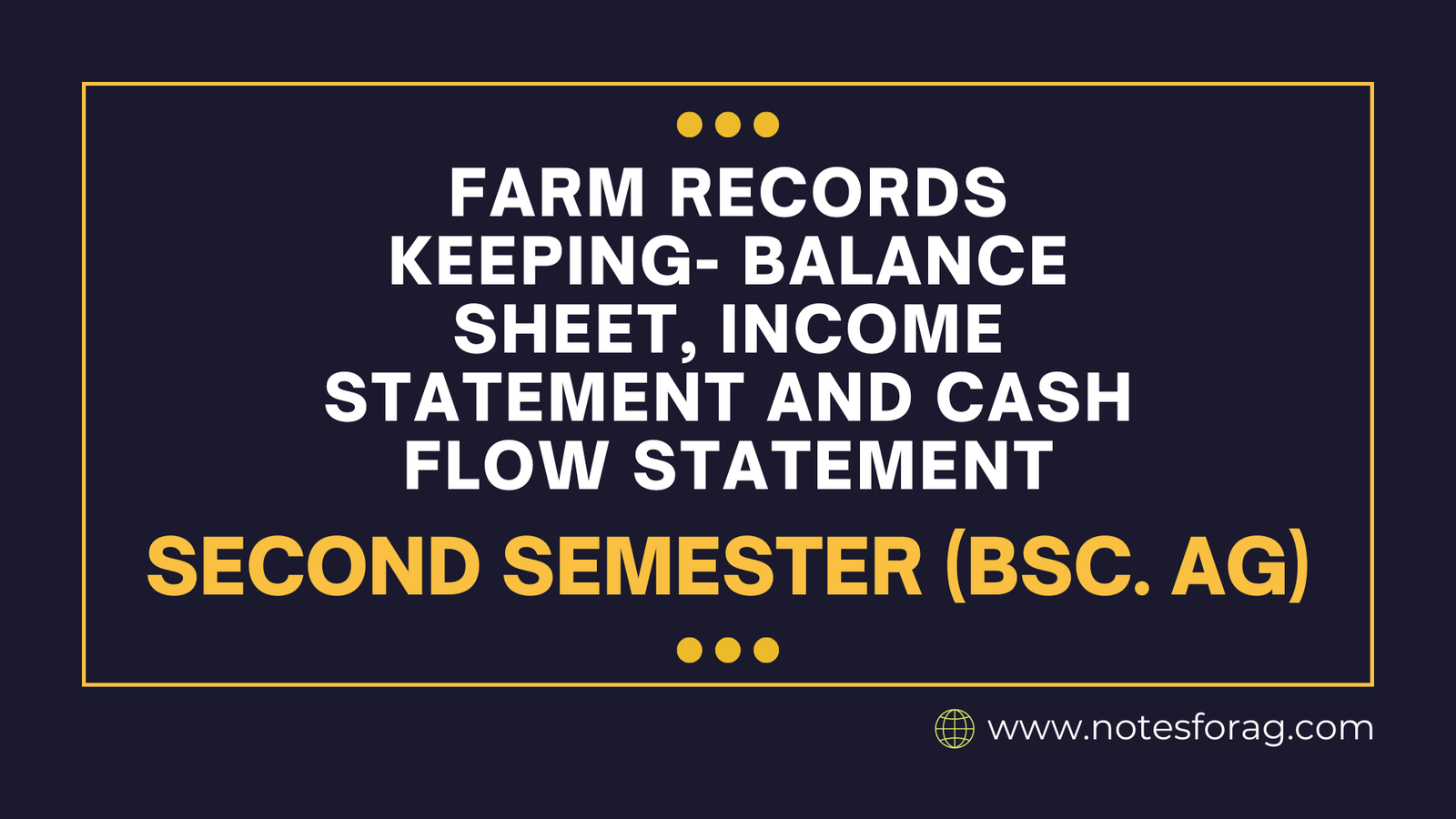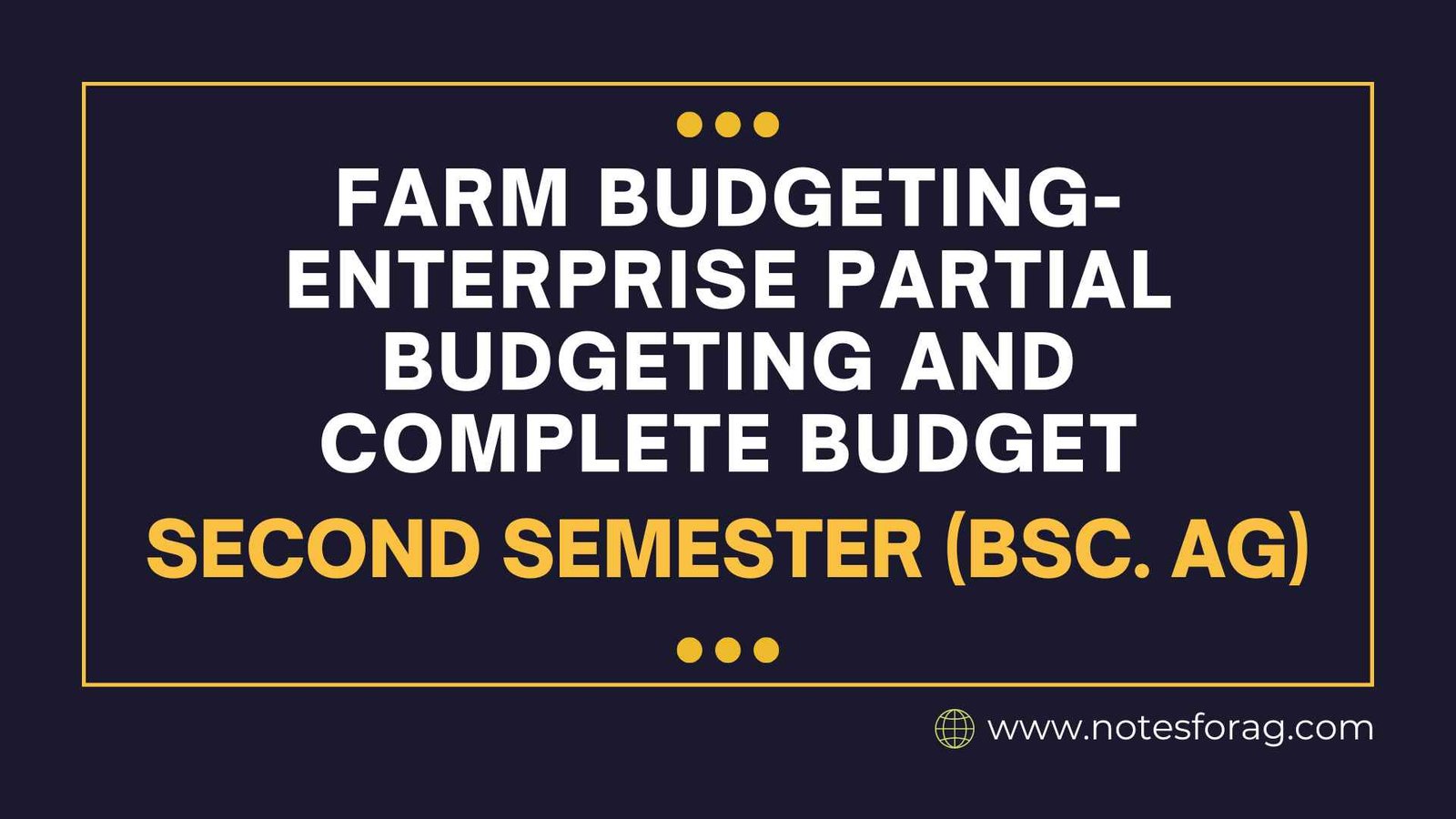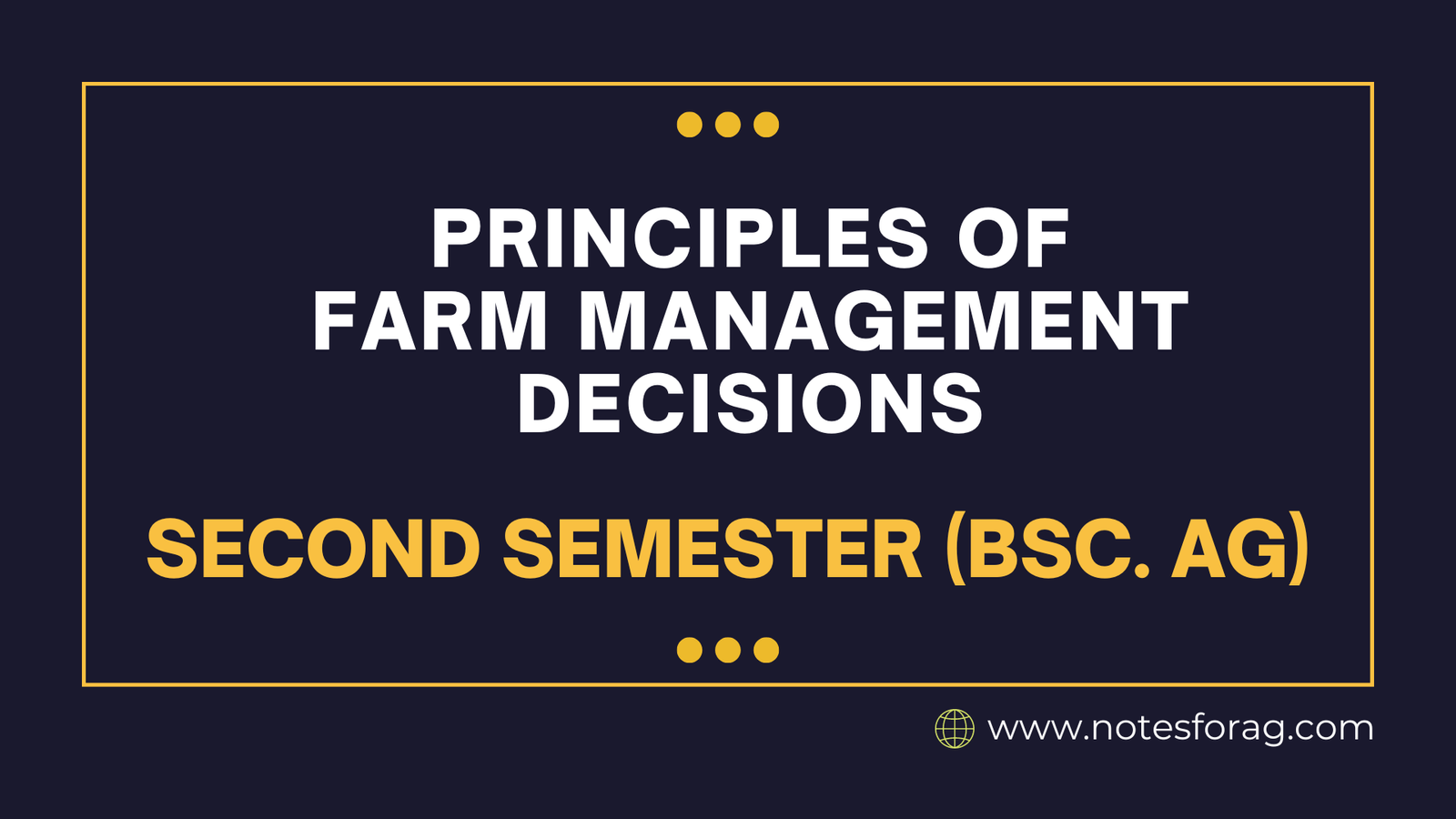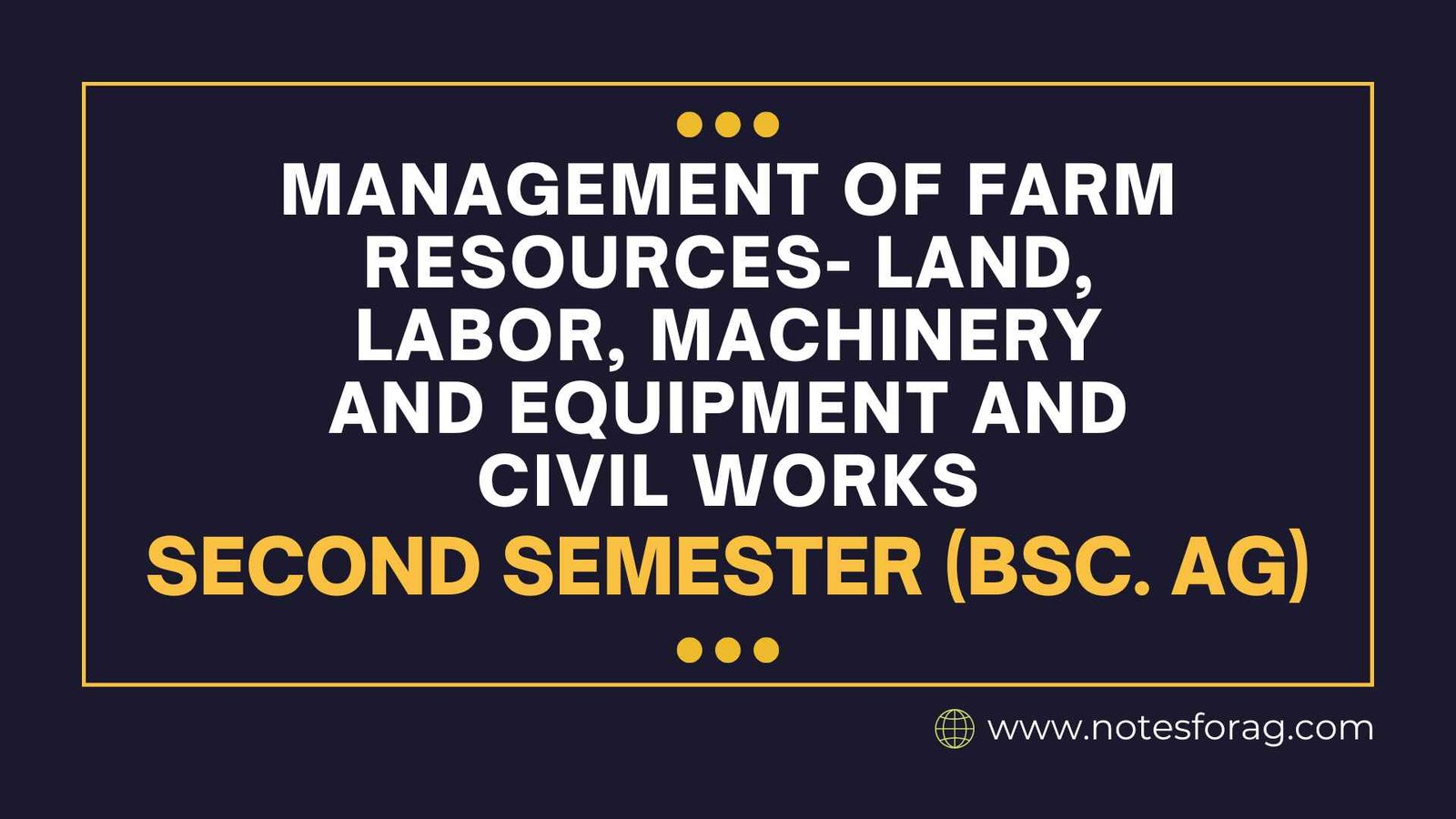Farm records keeping- balance sheet, income statement and cash flow statement
Effective farm records keeping involves maintaining thorough financial records, including the balance sheet, income statement, and cash flow statement. The farm’s assets, liabilities, and equity are shown in the balance sheet, which offers a moment in time view of the farm’s financial situation. The income statement, also known as the profit and loss statement, summarizes … Read more










